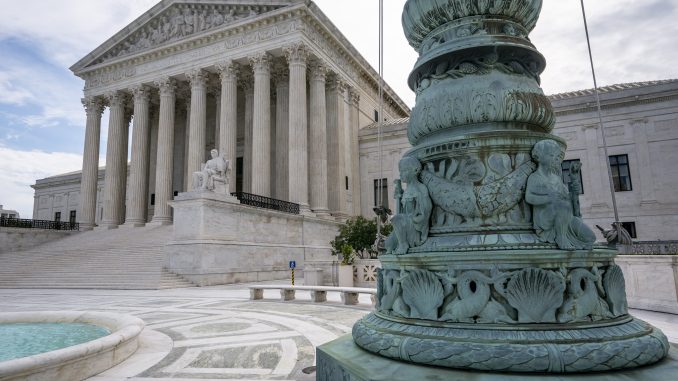
WASHINGTON, D.C. — The Supreme Court sided with energy companies and the Trump administration Monday in reinstating a critical permit for a proposed natural gas pipeline that would cross under the Appalachian Trail.
The justices ruled 7-2 to throw out a lower court ruling that had canceled the permit for the Atlantic Coast Pipeline. It would bring natural gas from West Virginia to growing markets in Virginia and North Carolina. Its supporters say the pipeline would bring economic development, thousands of jobs and reduced energy costs for consumers.
Justice Clarence Thomas wrote for a majority of the court that the “Forest Service had the authority to issue the permit here.” Justices Sonia Sotomayor and Elena Kagan dissented.
Other legal issues remain before construction of the pipeline could begin. The narrow question before the Supreme Court was whether the U.S. Forest Service has the authority to grant rights-of-way through lands crossed by the Appalachian Trail within national forests, as project developers Dominion Energy and Duke Energy and the Trump administration argued.
The pipeline would run in part through the George Washington National Forest, where a 0.1-mile segment of the pipeline would cross about 600 feet beneath the Appalachian Trail.
The Sierra Club and other environmental groups had argued that because the 2,200-mile scenic trail from Georgia to Maine is considered a unit of the National Park System, no federal agency can grant a right-of-way for the pipeline. They say only Congress can approve such a crossing.
The Richmond, Virginia-based 4th U.S. Circuit Court of Appeals agreed with the environmentalists in 2018 and threw out a special-use permit for the 605-mile natural gas pipeline. The appeals court relied on a century-old law, the 1920 Mineral Leasing Act, in finding that the Forest Service does not have authority to grant rights-of-way for pipelines on federal land in the National Park System.
The project has had numerous setbacks since plans were first announced in 2014. Legal challenges brought by environmental groups have prompted the dismissal or suspension of eight permits and halted construction for more than a year.
The project is more than three years behind schedule and its original price tag has nearly doubled to $8 billion.
Dominion says the pipeline will bring a critical new gas supply to Virginia and North Carolina to support the shift away from coal and toward intermittent natural resources like solar. The company also says greater availability of natural gas will attract manufacturing businesses.
Environmental groups say the pipeline would scar pristine landscapes, put numerous rivers and streams at risk of increased sedimentation and harm sensitive species.



